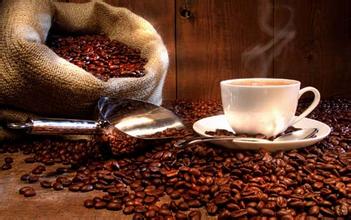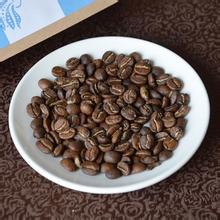Colombian boutique coffee the latest information on Colombian coffee
Colombian coffee is one of the few coffee in the world named after the country, and it is also one of the most famous coffee in the world. Colombia is located in the northwest of South America, and coffee is another pride of the people of this country besides football. The streets and alleys here are full of cafes, and the waiter pours coffee with exquisite porcelain bowls and respectfully delivers it to customers. The coffee room is full of aroma and refreshing.
The history of Colombian coffee dates back to 1808. A priest brought coffee to Colombia for the first time from the French Antilles via Venezuela. Since then, coffee trees have taken root in this country. The country has also become the second largest coffee producer after Brazil, the world's largest exporter of Arabica coffee beans and the world's largest exporter of washed coffee beans.
Many people equate Colombian coffee with high quality and good taste. This is due to the special climate of Colombian coffee producing areas and the careful cultivation of coffee growers.
Colombia's coffee-producing area is located at the foot of the Andes, which extends three main mountains, namely, the Cordillera, the Central Cordillera and the West Cordillera, and coffee is grown on the highlands formed by these mountains. The pleasant climate of Colombia provides a wonderful garden of Eden for coffee. It is mild and humid here, and different kinds of coffee can mature one after another in different periods. In Colombia, coffee cultivation has reached 1.07 million hectares, there are about 302000 coffee plantations in the country, and 30 to 40 per cent of the rural population depends directly on coffee production. Although there are many farms in Colombia, they are not large in area. The area of each farm is only about 2 hectares, and more than 80% of the coffee plantations have only about 5000 coffee trees, an average of 3000. Thus it can be seen that agriculture in Colombia belongs to the small-scale farm type. Locals plant tall trees or banana trees around the coffee trees, which can build an Arbor for the coffee trees at the seedling stage to ensure the environment needed for the coffee to grow. Due to the high humidity, small temperature difference and slow ripening of coffee beans in the coffee forest, which is conducive to the accumulation of caffeine and aromatic substances, the quality of Colombian coffee is very good.
Coffee drinkers know that Colombian coffee has a silky taste. It has won more praise than any other coffee: it is called "green gold". The best coffee in Colombia is Colombian Super Coffee, which is medium-bodied, low-acidity, sweet, has the best flavor and delightful aroma. It not only has the rich smoothness of Sumatran manning, but also has a special taste of walnut bitterness and nutty. This kind of coffee is suitable for medium or deep roasting, has a faint sweetness after brewing, mild temperament and rich aroma.
The name Columbia Premium comes not only from the excellent quality of this coffee, but also from the giant shape of coffee beans. Colombian coffee, which is lower than the special level and small in size, is excellent, excellent and good in turn. In addition to the large beans, Colombian premium coffee is usually made from newly harvested coffee beans, the most famous of which is Bramanga in Santander. Columbia super is characterized by its aroma, rich and thick, with clear high-quality acidity, high balance, endless aftertaste.
The taste of coffee often has a regional character. The "hard" coffee represented by Brazil has a strong taste, while the "soft" coffee represented by Colombia has a light flavor. Some people compare Colombian coffee to women, vaguely flirtatious, charming and just right, nostalgic. Taste Columbia premium coffee, it is best not to add milk and sugar, that will dilute its original taste.
Authentic Colombian coffee is brewed with a color as clear as emerald. It is like the masterpiece of the greatest tune, which matches sour, bitter and sweet just right. After drinking, the fragrance fills the whole mouth. The aroma comes out of the nose again. It is so soft and arrogant that it occupies your taste buds, your mind and even your soul as quickly as possible. Let you be captured by it unwittingly. Its flavor characteristics: sweet in acid, low bitter taste, rich in nutrition, with unique sour and mellow taste.

Important Notice :
前街咖啡 FrontStreet Coffee has moved to new addredd:
FrontStreet Coffee Address: 315,Donghua East Road,GuangZhou
Tel:020 38364473
- Prev

Boutique Yemeni coffee the latest news and the latest flavor introduction
When many people hear the name mocha coffee, they always think of the fancy coffee mixed with hot chocolate sold in cafes, but as a kind of individual coffee, Yemeni mocha has a unique charm and a long history. Yemeni mocha is one of the oldest coffee in the world, but until recently, Yemeni mocha has come to be regarded as the best and most beautiful in the world.
- Next

An introduction to the history of Guatemalan coffee Antigua coffee boutique coffee flavor
Antigua coffee from Guatemala must be on the menu of some upscale cafes. People who like it always keep in mind its special smoke smell. Coffee has created prosperity for Guatemala. To this day, coffee still affects the Guatemalan economy. Antigua is the oldest and most beautiful city in America. As early as 1543
Related
- Detailed explanation of Jadeite planting Land in Panamanian Jadeite Manor introduction to the grading system of Jadeite competitive bidding, Red bid, Green bid and Rose Summer
- Story of Coffee planting in Brenka region of Costa Rica Stonehenge Manor anaerobic heavy honey treatment of flavor mouth
- What's on the barrel of Blue Mountain Coffee beans?
- Can American coffee also pull flowers? How to use hot American style to pull out a good-looking pattern?
- Can you make a cold extract with coffee beans? What is the right proportion for cold-extracted coffee formula?
- Indonesian PWN Gold Mandrine Coffee Origin Features Flavor How to Chong? Mandolin coffee is American.
- A brief introduction to the flavor characteristics of Brazilian yellow bourbon coffee beans
- What is the effect of different water quality on the flavor of cold-extracted coffee? What kind of water is best for brewing coffee?
- Why do you think of Rose Summer whenever you mention Panamanian coffee?
- Introduction to the characteristics of authentic blue mountain coffee bean producing areas? What is the CIB Coffee Authority in Jamaica?

